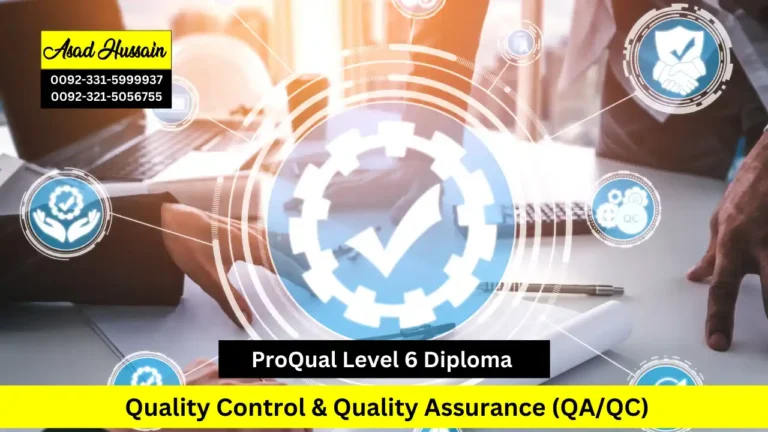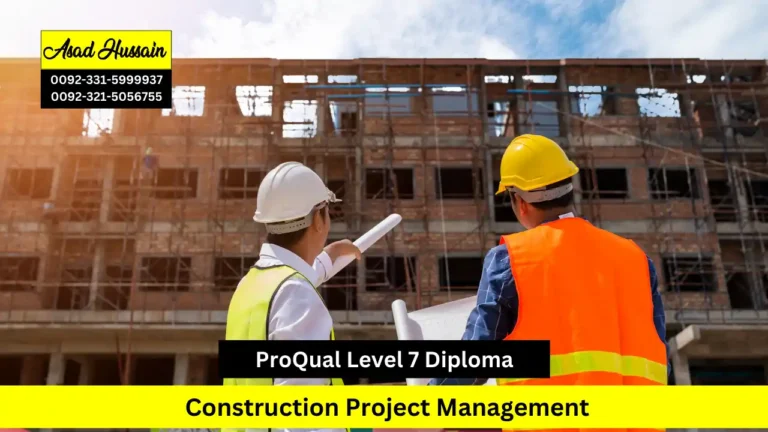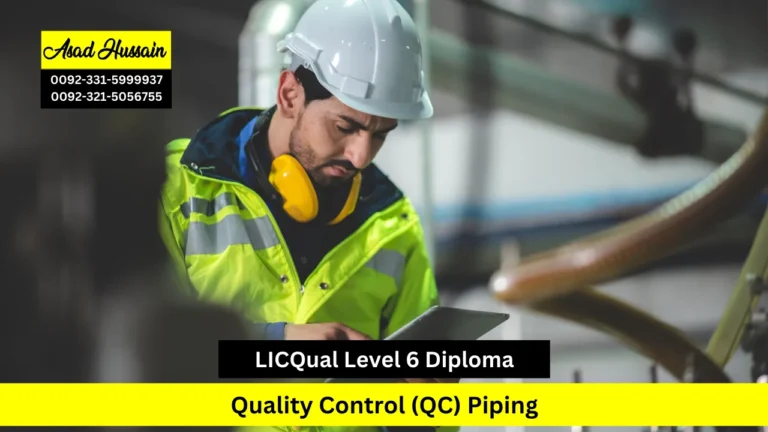In today’s rapidly evolving infrastructure landscape, the demand for skilled professionals in utility mapping and surveying is higher than ever. The ProQual Level 6 Diploma in Utility Mapping and Surveying equips participants with the essential skills and knowledge to excel in this specialized field. Whether you’re looking to enhance your career in civil engineering, construction, or environmental management, this diploma provides a solid foundation for success.
The ProQual Level 6 Diploma in Utility Mapping and Surveying is designed to provide comprehensive training in the principles and techniques of utility mapping. Participants will learn to accurately locate and document underground utilities, ensuring safe and efficient construction and development projects. The curriculum emphasizes both theoretical knowledge and practical application, preparing students for real-world challenges.
The ProQual Level 6 Diploma in Utility Mapping and Surveying is an invaluable qualification for anyone looking to advance their career in infrastructure and construction. With a focus on practical skills, expert instruction, and comprehensive coverage of essential concepts, this diploma prepares you to meet the challenges of the industry head-on. Don’t miss the opportunity to elevate your expertise—enroll today and take the first step toward a successful career in utility mapping and surveying!
We are offering ProQual Qualifications in Association with ICTQual ( Inspire College of Technologies Uk).
Program Highlights
The ProQual Level 6 Diploma in Utility Mapping and Surveying, achieve the qualification candidates must achieve all of the mandatory units:
Mandatory Units
| Unit Title | Unit Level |
| Agree project requirements and plan site surveying in geomatics and site surveying management | 6 |
| Manage the analyses and presentation of site surveying information in geomatics and site surveying management | 5 |
| Identify, assess and present spatial data in geomatics and site surveying management | 6 |
| Vacuum excavations | 4 |
| Identify hazards and control risks in geomatics and site surveying management |
Entry Requirements for ProQual Level 6 Diploma in Utility Mapping and Surveying
To ensure that candidates are well-prepared for the ProQual Level 6 Diploma in Utility Mapping and Surveying, the following entry requirements must be met:
1. Minimum Age
- Candidates must be at least 18 years old.
2. Educational Background
- A minimum of a Level 3 qualification in a relevant field (such as civil engineering, surveying, or construction) is preferred.
- Alternatively, candidates should have equivalent professional experience in surveying, engineering, or a related discipline.
3. Professional Experience
- Relevant work experience in utility mapping, surveying, or related areas is strongly recommended. This could include roles in civil engineering, construction, or environmental management.
4. Technical Proficiency
- Familiarity with surveying equipment and software used in utility mapping is advantageous. Candidates should have a basic understanding of surveying principles and techniques.
5. Communication Skills
- Proficient spoken and written English is essential for understanding course materials and effectively engaging in practical exercises and discussions.
6. Commitment to Learning
- Candidates should demonstrate a commitment to completing the course and actively participating in all practical training sessions.
Meeting these entry requirements ensures that participants are prepared for the rigors of the ProQual Level 6 Diploma in Utility Mapping and Surveying. This foundation allows candidates to maximize their learning experience and acquire the necessary skills to succeed in the field.
Upon successful completion of the ProQual Level 6 Diploma in Utility Mapping and Surveying, participants will be able to:
- Understand Utility Mapping Fundamentals:
Demonstrate a comprehensive understanding of the principles, methodologies, and technologies involved in utility mapping. - Utilize Advanced Surveying Techniques:
Apply a variety of surveying techniques and tools, including ground penetrating radar (GPR) and electromagnetic locators, to accurately detect and map underground utilities. - Conduct Data Collection and Analysis:
Collect, analyze, and interpret data from utility surveys, ensuring accuracy and reliability in mapping results. - Read and Interpret Utility Plans:
Effectively read and analyze utility plans, engineering drawings, and schematics to inform project decisions and planning. - Perform Risk Assessments:
Identify potential risks associated with utility mapping projects and implement strategies to mitigate these risks during planning and execution. - Communicate Findings Clearly:
Present survey results, findings, and recommendations effectively to stakeholders, using appropriate reporting formats and communication techniques. - Adhere to Industry Standards:
Understand and apply relevant industry standards and regulations related to utility mapping and surveying practices. - Work Collaboratively in Project Teams:
Collaborate effectively with other professionals, such as engineers and project managers, to integrate utility mapping into broader project plans.
These learning outcomes ensure that participants are equipped with the necessary skills and knowledge to excel in utility mapping and surveying, making them valuable assets in their respective fields.
The ProQual Level 6 Diploma in Utility Mapping and Surveying is tailored for a variety of professionals and aspiring individuals, including:
- Civil Engineers:
Engineers looking to enhance their expertise in utility mapping to improve project planning and execution. - Surveyors:
Professionals in the surveying field who want to specialize in utility detection and mapping. - Construction Managers:
Individuals responsible for overseeing construction projects who need a thorough understanding of underground utilities for safe planning and execution. - Environmental Consultants:
Specialists conducting environmental assessments who require knowledge of utility mapping for site evaluations and planning. - Utility Engineers and Technicians:
Professionals working in utility management and infrastructure who seek to improve their mapping skills and understanding of utility networks. - Geospatial Analysts:
Individuals interested in expanding their skills in mapping technologies and data analysis related to utilities. - Aspiring Professionals:
Those considering a career in utility mapping, surveying, or related fields who wish to gain foundational knowledge and skills.
This course equips participants with the necessary competencies to excel in the utility mapping and surveying industry, making it suitable for anyone involved or interested in this critical area.







